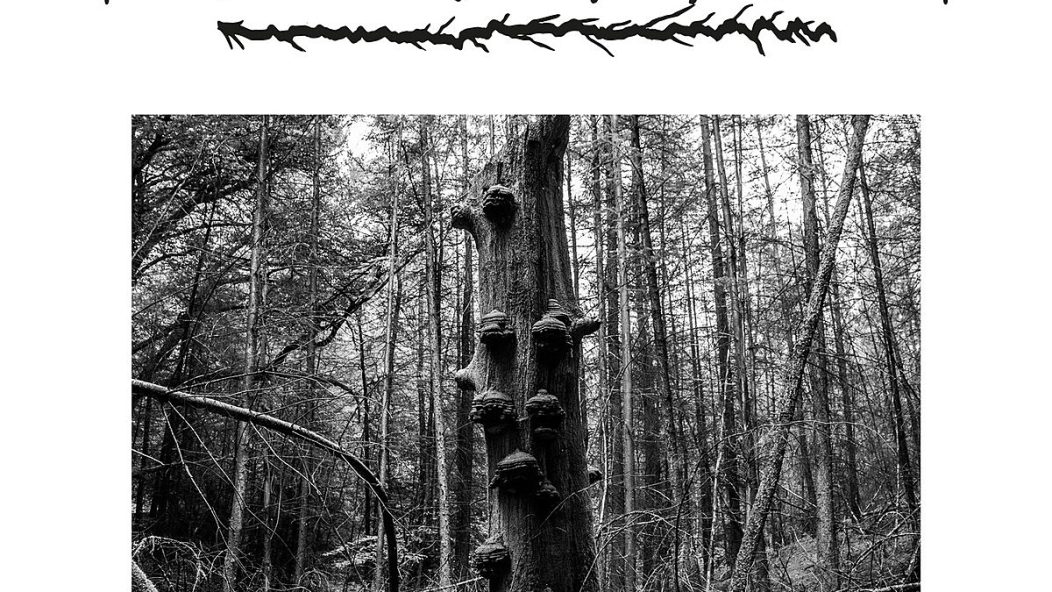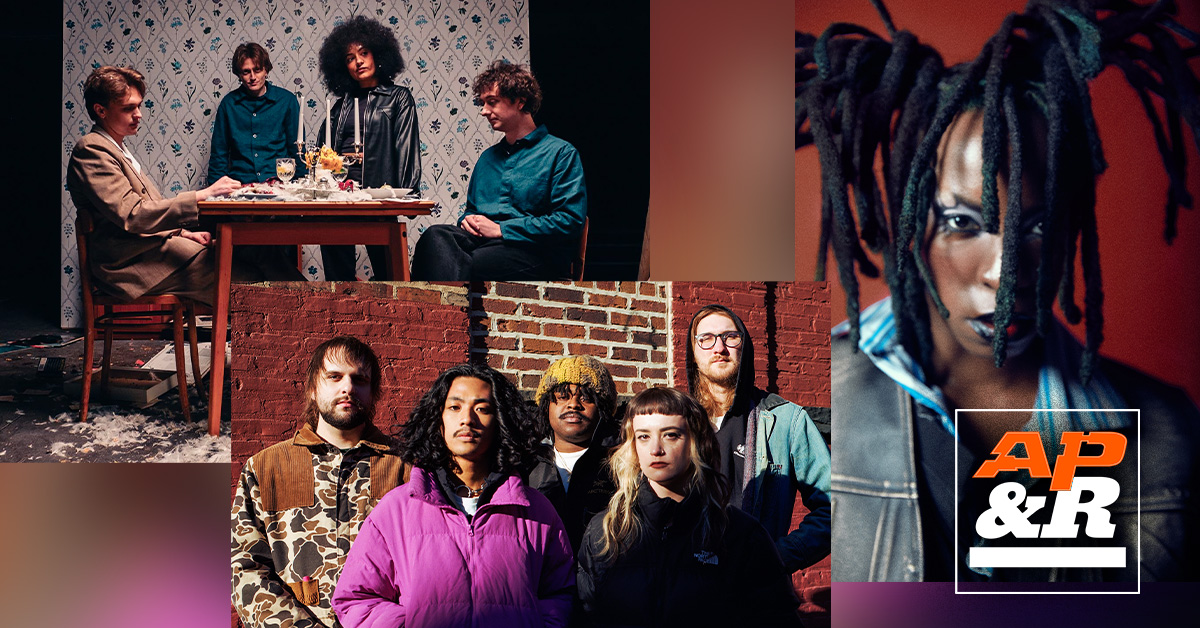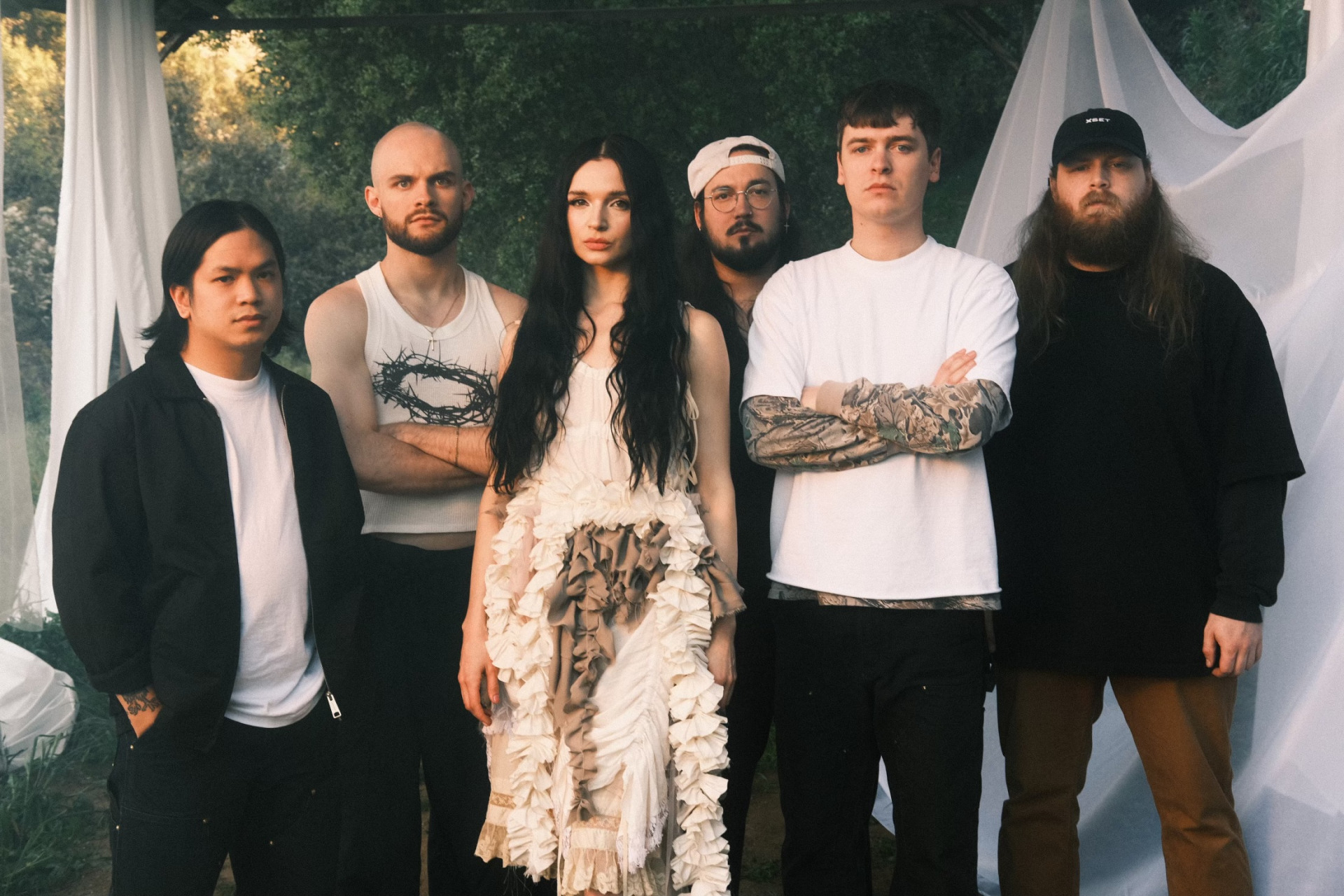
Fluisteraars Blossoms On New Album (Full Album Stream + Interview)
…
The new Dutch scene (which actually isn’t so new) has gifted the world with an ever-growing selection of new, challenging, and creative black metal. Looking at the Haeresis Noviomagi circle alone, artists like Turia and Iskandr turn black metal on its head while simultaneously following its tenets. This type of creativity and “wolf in sheep’s clothing” approach we see with the modern Dutch scene and their revolutionizing of sound displays black metal for what it is, but also what it’s potential can be. And yet, there is another, one whose impulsive desire for furthering beyond genre and classification is immediate and pugnacious. Fluisteraars is the answer to the question their countrymates’ ask with their secretive approach to evolution: what if black metal simply gave up on trying to be black metal and embraced something else as a primary influence?
With last year’s critically acclaimed Bloem, Fluisteraars, who had very recently become a duo (after the departure of bassist Asher de Vries), found themselves deep in the grip of immediate and intense collaboration between vocalist Bob Mollema and multi-instrumentalist Mink Koops.
“It just works when we are together. That is perhaps an approach,” says Mollema in a full interview which can be read below. “Mink and I are endlessly listening to music, philosophising and diving into the woods. That’s our way of doing things.”
Mollema and Koops are lifelong friends and musical collaborators, which leads to a deeper sense of artistic self and goals. “We have experienced a lot together and therefore understand each other very well,” Mollema continues. “That is also the reason why there is magic between us. We often explain things to each other without using words.”
The magic found on upcoming album Gegrepen door de Geest der Zielsontluiking (trans. “Captured by the Spirit of Soul Blossoming,” another reference to blooming), which can be streamed in full ahead of its release date, is certainly tangible. Koops’ grasp on songwriting and individual style is palpable, concentrating on the style he fully realized on Bloem and adding to it further; the album features heavy influence from free improvisation and avant-garde in choice sections, offering a departure from their usual intensity for yet another. Mollema’s vocal performance also transcends to another plane of power — expounding upon his varied performance on Bloem, his increased strength as a talented vocalist is the only truly fitting performance to complement Koops’ own musical personality.
…
…
Gegrepen door de Geest der Zielsontluiking marks a return to a rawer, looser, and more organic sound when compared to the preceding Bloem‘s highly polished approach. What led to this change?
Bob Mollema: I don’t see it as a return but as something new. It is indeed rawer, but for me, it is a step forward. The change did not happen consciously but felt logical. As an individual, I automatically live with the seasons and am very aware of the nature around me. When we were writing this album, summer was also coming to an end and therein also something in me. Not in a negative way, of course, but something budded and died again. So there is room for new crops again. So I think it sounds so raw because the ground in ourselves has only just been ploughed again.
This natural character you imbue Fluisteraars falls in line with the Bloem art which precedes this new album. Do you feel Fluisteraars is a natural entity?
B: When Mink and I work for Fluisteraars, we don’t have a habit that we work from. The work always comes from an inner urge. That inner urge differs every time because we have no conscious influence on it. Therefore, the music stays very much with us and is as unpredictable as the weather outside. So in a way, I don’t think it’s wrong to call Fluisteraars a natural entity. It is a vibration that we see in the world and catch. All we have to do is give shape to that vibration, just like a seismologist who converts vibrations from the depths into a line pattern.
When do you find that this inner urge strikes?
B: He strikes at various points in our process. In the pre-production phase, we are guided by our feelings until there is a structure that “feels” right. Later, in the studio, it often strikes us because our music has not yet crystallised. We let ourselves be led by our impulses in the creation of the sound. Constantly mirroring the sound with the text. Does a story emerge that matches the intention we feel? Then there is a click and we can continue. This is easy to talk about afterwards, but in the moment itself, these kinds of choices arise because the two of us open ourselves up to the creative process. The creative process is something divine to us.
So there’s a lot of writing and song-solidifying done in the studio?
Mink Koops: It varies from album to album, but we’ve made many decisions in the studio with the last two full-lengths. Before the recordings, we make rough sketches of what the songs will look like in terms of structure. But we leave a lot open to having freedom in the studio to shift the ship at any time. Before we went into the studio, we already had the plan to record everything without using close micing and to let the sound in the room determine the timbre as much as possible. Eventually, you find out in the studio that some things work a little less than other things and that some things are cool by accident. And from there, you build on. We didn’t use this way of working before Bloem because we didn’t have enough studio experience. After all, your time is limited in the studio, and this way of working requires a certain prioritizing. You can’t keep trying forever, or your album will not be there at the end of four days in this case.
With these varying approaches and as you learn over time, which do you feel best suits Fluisteraars, if there even is a single approach which does?
B: It just works when we are together. That is perhaps an approach. Mink and I are endlessly listening to music, philosophising and diving into the woods. That’s our way of doing things. What method comes from that we cannot say or emphasise. It doesn’t have to be pigeonholed for me either. I wouldn’t want to unravel it myself because it comes naturally. If you become aware of successful cooperation and the cogs behind it, you risk destroying it. So I prefer to let the magic live. We’ll see what each album brings and which way suits it.
This idea of magic and artistic relationships leads me to ask — Fluisteraars underwent a semi-drastic change before Bloem with the departure of longtime bassist Asher de Vries, ushering in not only a new era with the band as a duo, but also a steep progression in sound and progression. Do you feel that special connection between the two of you led to this? Would it work with anyone else?
B: We have been friends since we were eight years old. We have experienced a lot together and therefore understand each other very well. That is also the reason why there is magic between us. We often explain things to each other without using words. With another person there, it can be nice; you have an outside view. But the path that beckoned us was meant for the two of us as a duo. It’s nice to compromise with each other and not feel like you have to wait for a third opinion. We have the same taste in many areas, so it’s easy to share things and be inspired in the same way. In addition, we are both very open to new experiences; this contributes significantly to our adventure in sound.
Gegrepen door de Geest der Zielsontluiking features distinct elements which I feel show a distinct progression from the sound you championed on Bloem, namely through an increasingly adventurous vocal performance and the inclusion of atmospheric, improvised passages. What led to these creative decisions, and what goals did you have for this release to help differentiate it from your previous works?
B: Part of the concept, namely transcending the prevailing morality, has found its way into the creative process. To do new jobs, you sometimes have to work irrationally and chaotically. By this, I mean letting things happen and not thinking in terms of uniformity. In this way, you reach new territory through irrationality. That new territory is often powerful, unknown, exciting and mysterious. We didn’t necessarily want to achieve that effect, but it did happen. We did not hold back on ideas, and indeed we made several passages that represent the shape of that new territory. I gave my vocals free rein by letting myself feed off the sight of those new terrains. Again, this is not a conscious process. It was not in any way the idea of surpassing Bloem or making a suitable successor. This album is a new story.
How do you feel Fluisteraars has evolved beyond performance minutiae on this new album?
B: It’s now the second album the two of us have made. Whereas with Bloem, it felt like a defloration, now it has become routine. Without being condescending to anyone, it’s something we’ve wanted for a long time but couldn’t get done because of history and friendship. It has evolved in the sense that we trust each other 100% in our personal process. It no longer has to pass through a third person but remains within the walls of our common fortress. The small talk we have about the creative process is becoming increasingly unclear to the outside world but more apparent to ourselves. That is very nice, and I think that we might write a whole album without talking to each other in the future. Although that would be very boring.
As Fluisteraars’ creativity style becomes more insular, how do you see your interactions together changing?
B: Because we are creating our empire more and more, I notice that we communicate faster and easier about the music. We both know the farthest corners of our subject matter and know exactly where to open the gates sometimes and defend ourselves sometimes. In this realm, we don’t always have to be in the same place together. Mink knows precisely what to do, and so do I. We both take our responsibilities and know that things will work out anyway. That, again, is the magic of years of friendship and working as a duo!
How do you find yourselves approaching the idea of transcending morality in this new album? What do you feel lies beyond what we consider to be moral, and how do you harness this chaos in your songwriting and studio approach to find new territory?
B: Of course, we used conventional means to capture the music we made. What was a way to break through that was not to polish the music. We kept it to first takes so that we kept the intention of our emotion. That’s something that transcends modern morality, I think. It makes it real, not endlessly polished, to be more marketable.
There is no telling what lies beyond our assumed morality. But what we hope to create is a place of awe of nature. I mean a place where nature is viewed not through economic glasses but romantic and fearful ones. To portray this new territory, we have also chosen a somewhat more chaotic approach to things. More impulsive; letting ourselves be led by our intuition. I believe that as humans, we are still connected to nature on a deep level, but that the fast-paced society has switched this off. By allowing intuition, you are listening to the deepest area in yourself, which may even receive impulses from nature in your immediate surroundings. Maybe we are still one with the earth. I think it is rather a thought that prevailed in the world for thousands of years. Different polytheistic civilisations had gods for different natural forces, big and small. I do not believe that people thought there was a god on a cloud, but rather that the movement and heartbeat of nature was a living organism. An organism with different body parts that had a name. That is the feeling we are trying to achieve with this album. How we do that, for example, in our last song is to drop the lyrics completely. It’s tonal screaming, which may slowly form new words.
Do you feel Fluisteraars has traversed into new territory within or beyond black metal as a result?
B: This is difficult to say because it requires an outsider’s perspective. What we do read and see is that people feel we are creating new cornerstones within the genre. Whether that is the case, perhaps it is. I would consider it a compliment if we inspire people. What we do ourselves is to include as many cultural references as possible in our music. Mink and I both have an artistic background in our education, so we approach the creative process in an artist’s way. That makes the writing process atypical, and I think we often enter new territories.
What is it about Fluisteraars’ music, especially on this new album, that you feel would make an outsider to the creation process think this way?
B: That is a question that cannot be answered. It is difficult to look at the music as an outsider. We can only tell about the process, but how an outsider perceives it; no idea. Of course, we hope that people will get a sense of freedom by following our intuition and not being concerned with uniformity. The only tricky thing in the scene is that people feel like they’re betraying a particular ideal when they listen to black metal that’s off the beaten track. To those people, I would like to say, get off the road and walk in the woods.










